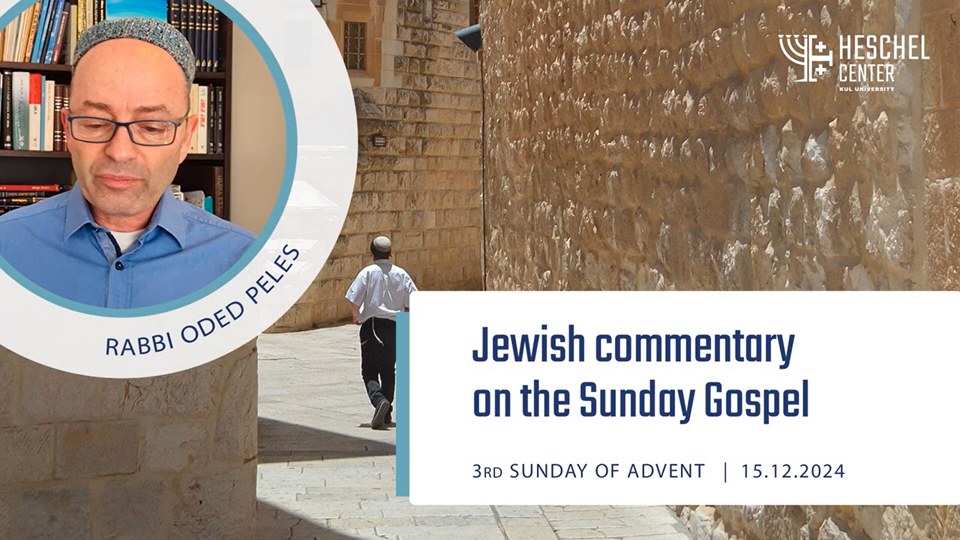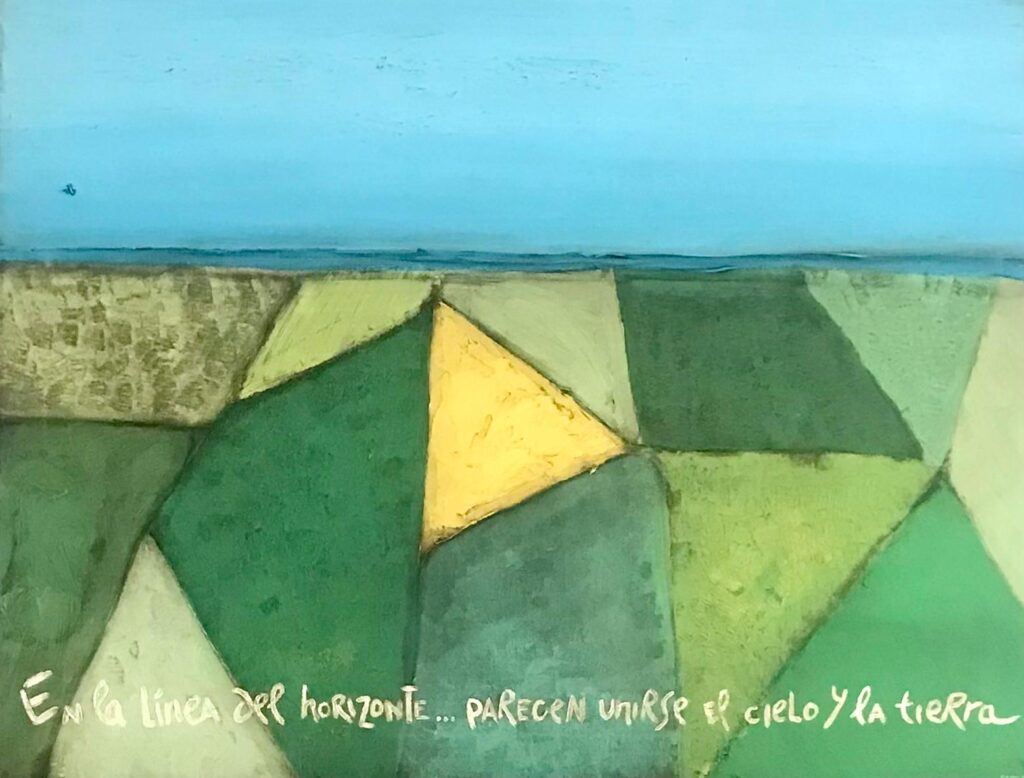Heschel Centre for Catholic-Jewish Relations at the Catholic University of Lublin
15 December, 2024
4 min
Charitable Giving And Loving-Kindness – Important Principles To Christians And Jews
“John the Baptist provides profound insights into Jewish social ethics, particularly regarding economic justice and sharing. When the crowd asked him, “What should we do?” John responds with practical teachings that emphasize the core Jewish principles of Tzedakah [charitable giving] and Chesed [loving-kindness], which views sharing not just as an optional charity, but rather as a moral obligation”, stresses Rabbi Oded […]

“John the Baptist provides profound insights into Jewish social ethics, particularly regarding economic justice and sharing. When the crowd asked him, “What should we do?” John responds with practical teachings that emphasize the core Jewish principles of Tzedakah [charitable giving] and Chesed [loving-kindness], which views sharing not just as an optional charity, but rather as a moral obligation”, stresses Rabbi Oded Peles, the Rabbi of ‘Shevet Achim’ Conservative congregation in Jerusalem., in his commentary for the Catholic University of Lublin Heschel Center for the Sunday, December 15.
On the 3rd Sunday of Advent in the Gospel according to Luke (3, 10-18), John the Baptist provides profound insights into Jewish social ethics, particularly regarding economic justice and sharing. When the crowd asked him, “What should we do?” John responds with practical teachings that emphasize the core Jewish principles of Tzedakah [charitable giving] and Chesed [loving-kindness], which views sharing not just as an optional charity, but rather as a moral obligation. In this way, the definition of Tzedakah expands to become “righteousness”, the required way of life.
As it is written in the Torah: “If there be among you a poor man, one of your brothers within any of your settlements in your land which the Lord your God is giving you, do not harden your heart, nor shut your hand from your poor brother; Rather, you are to open, yes, open your hand to him, and are to give-pledge, yes, pledge to him, sufficient for his lack that which is lacking to him” (Deuteronomy 15, 7-8). The book of Proverbs also emphasizes the importance of the two principles and links the two: ” He who pursues Tzedakah [righteousness] and lovingkindness will find life, Tzedakah, and honor” (21, 21).
The sages teach that the city of Jerusalem and its inhabitants will be redeemed if they shall practice charitable giving and sharing:” Ulla said: Jerusalem will be redeemed only through Tzedakah[righteousness], as it is stated: “Zion will be redeemed with justice and those who return to her with Tzedakah” (Isaiah 1:27)”. (Babylonian Talmud Shabbat, pg. 139a ). Furthermore, the sages teach us that practicing charity and sharing our fortune with the needy is so valuable that it is equal to practicing all the commandments in the Five Books of Moses together! : “And Rav Asi says: Charity is equivalent to all the other Mitzvot [commandments ] combined” (Babylonian Talmud Tr. Baba Batra pg. 9a).
We also learn that one of the ways to receive pardon from God for our sins, comes through practicing the moral and social obligation of giving charity and sharing, alongside repentance and prayer. As the central liturgical prayer of the Jewish High Holidays states: ” But repentance, and prayer and charity annul the evil decree”.
John the Baptist’s answer to the soldiers is: “…and be satisfied with your wages”, like the famous teaching in the Mishnah (Avot 4, 1): “Ben Zoma said: … Who is rich? He who rejoices in his lot, as it is said: “You shall enjoy the fruit of your labors, you shall be happy and you shall prosper (Psalms 128:2). “You shall be happy” in this world, “and you shall prosper” in the world to come”.
As we are looking to fulfill God’s will in the world, to be spiritually redeemed, to be forgiven for our sins – we are instructed and encouraged to create a society which is founded and based on core moral values. To be content with what we have and to share what we are lucky to own -with our fellow needy brothers and sisters.
“For the work of Tzedakah [righteousness] shall be peace, And the effect of Tzedakah, calm and confidence forever (Isaiah 32, 17)”.
About the Author:
Rabbi Oded Peles is the Rabbi of ‘Shevet Achim’ Conservative congregation in Jerusalem.
Cantor, musicologist and Israeli educator, Rabbi Peles was born in Israel to a Dutch-German Jewish family. Following in the footsteps of his grandfather, a renowned cantor in the Netherlands, Oded has served and performed as a Cantor in communities worldwide. He specializes in the unique musical traditions and liturgy of Western European Jewry.
For over twenty years Rabbi Peles has been active in interfaith dialogue both in his work and through his academic studies. For many years, he is leading the Christian-Jewish Hebrew learning group in Jerusalem, which studies the Bible, Old and New Testament.
Related

Emilio Girón: Stubbornness and Tinto de Verano
Exaudi Staff
30 March, 2025
5 min

Overcoming Emotional Dependence: A Guide with Psychologist Mónica Caballero
Proyecto Ánima
28 March, 2025
2 min

Addictions and Sexuality
José Miguel Ponce
28 March, 2025
2 min

The Chosen: A Series That Wins Hearts in Its Own Language
Mar Dorrio
27 March, 2025
4 min
 (EN)
(EN)
 (ES)
(ES)
 (IT)
(IT)

